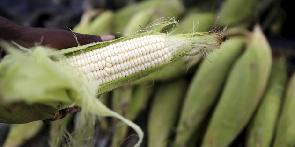Ghana’s economy has been predominantly agrarian. Various cash crops have a place in Ghana’s economic history. Tetteh Quarshie, for example, brought cocoa from Fernando Po, having experienced the viability of the beans. Other food crops such as rice, maize, soybeans etc. have been on our production radar.
Farming is mostly undertaken on small scale bases, with over-reliance on labor and the rains for the provision of irrigation. In spite of the toil and hard work, crop farmers are faced with the challenges of a ready market for their produce. This may force farmers to sell at unfavorable prices due to lack of storage facilities and the fear of crops being perished.
Other wholesale traders take advantage of this vulnerability of farmers to purchase the commodities at their determined prices, sometimes below the market prices which results in reduced income to the farmers. This contributes to the prevalence of poverty in farming communities, irrespective of the quality of farming output. Farmers do not earn the preferred due from their efforts. What steps are being put in place to improve agricultural trade?
Commodities Exchange
The commodities exchange is a market platform where derivative and agricultural products are traded. The goods may include wheat, barley, sugar, maize, cotton, cocoa, coffee, milk product. The commodities up for trading are mostly raw materials.
Many African economies are creating marketing opportunities using commodities exchange. There are about 15 African economies that engage in commodities exchange. Ethiopia commenced the trading of coffee and sesame seeds, connecting smallholder farmers to markets, enhancing food security and modernizing the economy. Coffee is now an important cash crop in Ethiopia, accounting for 35 percent of the country’s total export revenues between 2000 and 2014.
Ghana Commodities Exchange (GCX)
The establishment of GCX commenced in 2015 with a regulated market that connects buyers and sellers of commodities. The Exchange, under the Securities Industry Act, 2016 (Act 929), is incorporated with the necessary legal and operational framework that ensures sustainable trading. The Exchange harnesses on the internet and other digital tools in creating the markets with the value proposition of assuring market quality and quantity, timely delivery and payment of credits.
The Exchange has set up various warehouses across the country. The warehouses have been strategically positioned to be close to farming communities at the district, regional and national levels. This is to ensure that farmers are saved from the huge cost of transporting their goods to designated places.
The Exchange has put in place strict adherence to quality standards in tandem with the standards of the Ghana Standards Authority. If the commodity does not meet the standard, the Exchange has the capacity to clean and dry it to fall into the quality range. The commodity is only rejected when it has been damaged from the source.
The Exchange ensures that the quality of the commodity is intact, providing an appreciable level of guarantee and reducing the risk of post-harvest loss against the farmer. With these arrangements in place, banks and investors who pump resources into the operations of the scheme are guaranteed minimal risks.
To achieve a successful setup operations of the Exchange, various partners and institutions have been brought on board to ensure sustainable trading. The agricultural firms, smallholder farmers and associations, financial institutions have various membership portfolios ranging from trading membership, brokerage membership etc.
Smallholder groups will sensitize their members on the benefits of collective trading and the ready market that will be available at a favorable price. Other agricultural companies such as Wienco Ghana Limited etc. will add up to the market with the supply of maize, rice and other commodities. Market women also have an opportunity to extend the sale of the produce onto the Exchange.
One strategic component of the Exchange is the warehouse receipt systems. The receipt system gives farmers the opportunity to deposit goods (mostly grains) in order to acquire a warehouse receipt; a financial instrument that shows deposit proof with the quantity and quality of the goods in question. Farmers can delay the sale of their commodities to a period when prices are more favorable. Warehouse receipt systems can therefore mobilize credit for the agricultural sector and improve agricultural trade.
Benefits
Undoubtedly, the commodities exchange coupled with the warehouse receipt systems has enormous benefits for Ghana to tap into.
The Exchange will empower farming cooperatives to reap more financial value from their commodities. This is because the Exchange will create the platform for the farmers to choose the best price that suits their interest. The bottleneck of information asymmetry that characterizes the informal market is evicted as all information on the commodity and prices are shared with all parties.
Farmers will not be compelled to sell their grains (even when the prices are low), as they will have the option of storing the commodities to receive a warehouse receipt, from which they can sell the grains at an appreciable price. One of the mandate of the Exchange is to provide market pricing information to members.
This will be done through various price survey mechanisms to provide timely market prices, trends and projections. The information shared will empower members and farmers on deciding whether to prevailing price is good for them or they will store the commodity in anticipation better prices.
Financing of agriculture has been a big bane to the sector due to risks of production. The Exchange can be partnered by various financial institutions to serve as Settlement Banks in financing warehouse receipts. This is because upon evaluation, there is little or no risk involved as all the quality parameters are strictly adhered to by the Exchange. This has been a great relief to farmers as they can have their incomes promptly paid. The financial institutions will also manage the designated funds that will be used to finance bad stock trading. Credit facilities to farmers in the future should also be available below the commercial interest rates.
Planting for Food and Jobs is a flagship policy by the government to ensure that more farmers engage in agriculture to increase production output whiles creating employment opportunities. The commodities exchange will contribute to the enhancement of the Planting for Food and Jobs program. Farmers will be able to trade their commodities directly with buyers on the market or decide to store them at the warehouse for credit. This will attract the youth into venturing into agriculture as risks of post-harvest losses are virtually evicted.
There are numerous business and job opportunities in the operational chain of the Exchange; logistics, warehouse investments, drying and cleaning services etc. The exchange is going to create jobs in the agricultural space. Many human resources will be employed to ensure smooth operations. From the top managerial levels, there will be technicians, warehouse specialists, grain graders, certification, business development, brokers etc. It provides a fertile group for public-private participation.
The Exchange has been launched and we look forward to equitable and prosperous trading.
Source: thebftonline.com
 Home Of Ghana News Ghana News, Entertainment And More
Home Of Ghana News Ghana News, Entertainment And More





